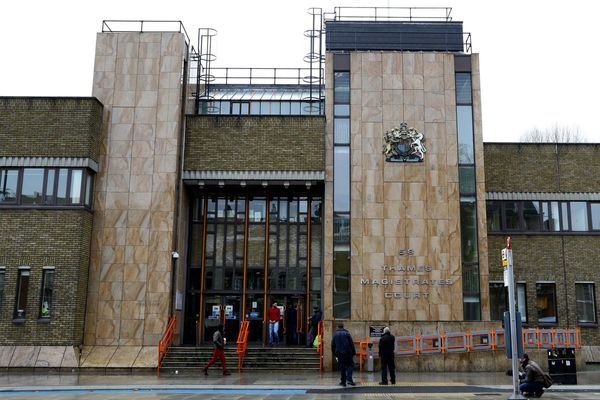Americans' pessimism about the U.S. economy deepened over the past month, as Russia's invasion of Ukraine sent oil prices surging higher and the stock market sliding, the March IBD/TIPP Poll finds.
The IBD/TIPP Economic Optimism Index, an early monthly read on consumer confidence, slid 3 points to 41, the lowest since October 2013. That makes seven straight months below the neutral 50 level. Readings above 50 reflect optimism.
As bad as that sounds, the underlying details look even worse.
U.S. Economic Optimism Index Components
The six-month outlook for the U.S. economy and for personal finances both crashed to the lowest levels since August 2011. That was back when the country was still climbing out of the financial crisis, and a battle over fiscal policy between the House GOP and President Obama nearly led to a default on U.S. debt.
The IBD/TIPP Economic Optimism Index is a composite of three major subindexes. They track views of near-term prospects for the U.S. economy and personal finances, along with support for government economic policies.
In March, the six-month U.S. economic outlook index dived 5 points to 33.9, continuing to deflate after reaching a Covid-era high of 55.9 in April 2021.
The personal finances subindex slid 4.1 points to 47.3. Views of personal finances had remained positive for all but one month since the pandemic struck in early 2020, reaching a bullish 59.7 last July.
The gauge of support for federal economic policies edged up two-tenths of a point to 41.9. That gauge got as high as 56.4 last June, after more rounds of stimulus checks and amid a big push for more expansive policies from President Biden.
Biden Approval Gets Anemic State Of The Union Bounce Amid Hot Inflation
High Inflation Shrinks Wages
The dismal near-term outlook seems at odds with the February jobs report, delivered last Friday, which showed the U.S. economy added a stronger-than-expected 678,000 jobs for the month as the omicron surge receded. The average hourly wage rose a strong 5.1% from a year ago.
The problem, however, is that the rise in consumer prices is eating away all those wage gains, and then some, for most Americans. The consumer price index rose 7.5% from a year ago in January, the biggest increase in nearly 40 years.
The IBD/TIPP Poll finds that just 19% of adults say their wages have kept pace with inflation, while 49% say they haven't kept pace.
Despite apparent labor market tightness, the IBD/TIPP Poll finds that 42% of households have at least one member who is out of work and looking for employment, up 1 point from February. Now 34% are concerned about job loss in the household, up 2 points. Factoring in the overlap, the share of job-sensitive households is currently 53%, unchanged from last month.
Investors Grow More Bearish On U.S. Economy
Russia's Ukraine invasion has exacerbated inflation pressures, leaving the Federal Reserve little choice but to significantly tighten policy, despite growth risks. Meanwhile, the broad stock market has fallen into a correction, while the Nasdaq is now in bear-market territory, down more than 20% from its peak.
With this backdrop, the U.S. Economic Optimism gauge fell four-tenths of a point to 46.6 among self-described investors. That's the lowest level since September 2016.
Make sure to read IBD's daily afternoon The Big Picture column to get the latest read on the prevailing market trend and what it means for your trading decisions.
IBD/TIPP counts as investors those respondents who say they have at least $10,000 in household-owned mutual funds or equities.
Investors remain far less downbeat than noninvestors. Among noninvestors, the IBD/TIPP index slumped 4.8 points to 37.8, the lowest since August 2011.
The March IBD/TIPP Poll reflects online surveys of 1,318 adults from March 2-4. The results come with a credibility interval of +/- 2.8 points.
Please follow Jed Graham on Twitter @IBD_JGraham for coverage of economic policy and financial markets.







